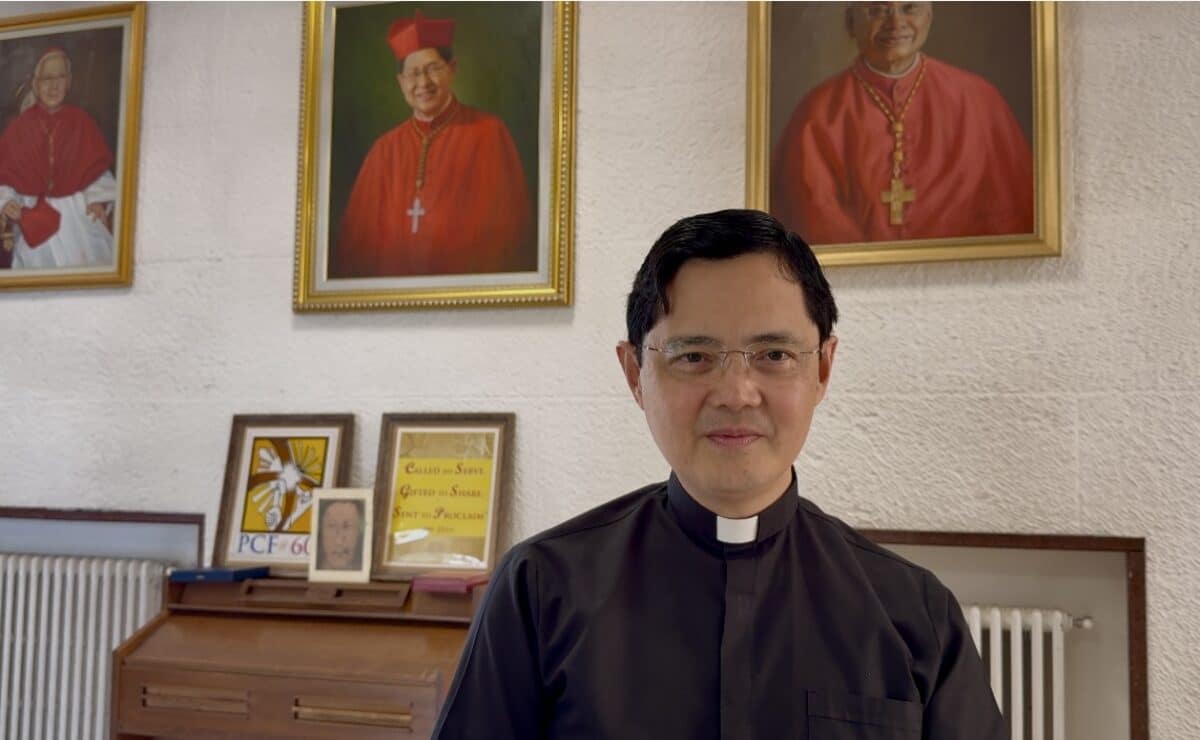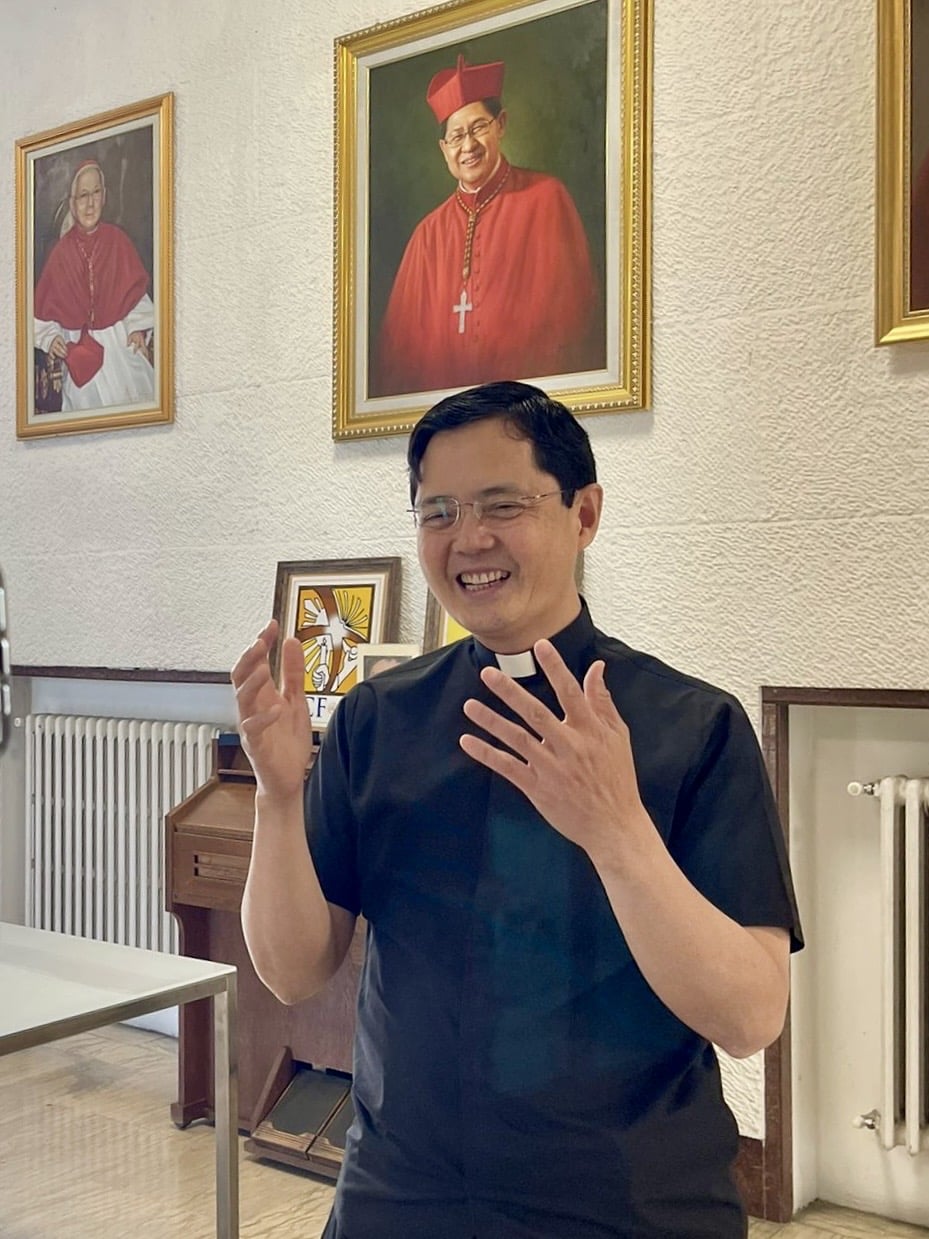What makes a good pope? Filipino rector in Rome shares his insights

Fr. Gregory Ramon Gaston | Photo by Elton Lugay
ROME – The world watched as white smoke billowed from the Sistine Chapel, signaling the swift election of Cardinal Robert Francis Prevost as Pope Leo XIV after just three ballots.
As the first American and Augustinian pontiff, Pope Leo’s election marks a new chapter for the Catholic Church – one that comes with both excitement and high expectations.
As the Church embarks on this new journey under its new leader, Fr. Gregory Ramon Gaston, rector at the Pontificio Collegio Filippino in Rome, shared his insights with Inquirer.net USA on the qualities vital for the Holy Father to lead the Church amid the changing times.
Fr. Gaston, who has earned a doctorate in communication from the University of the Philippines, described the Collegio Filippino as “the home for our priests sent by our bishops from different dioceses for ongoing formation and further studies.”
He emphasized that the pope’s mission has remained constant since the time of St. Peter. “All our popes, from the time of Saint Peter, have had only one goal: to continue the mission of Jesus.”
The Filipino rector noted that while the Church’s core values – charity, love of God and love of neighbor – remain unchanged, their expression must adapt to the times.
“The ways of expressing it differ depending on the era, but at the center is love for God and neighbor,” he said.
Fr. Gaston praised the late Pope Francis’ focus on social justice, saying his focus was on “helping the poor, because the gap between the rich and the poor is widening.”
He also mentioned that the Collegio is home to over 50 student priests – mostly Filipinos – and pointed to migration as a significant issue facing the Church today.

Fr. Gregory Ramon Gaston | Photo by Elton Lugay
“Many still migrate due to war, poverty or illegal activities,” he said.
Sharing his thoughts on the recent conclave, he referenced the election in Viterbo, north of Rome, in the 13th century. It took almost three years to choose Pope Clement IV’s successor, making it the longest conclave in the Catholic Church’s history.
It’s also where the term conclave comes from – “under lock and key,” because the cardinals who were meeting in Viterbo took so long the town’s frustrated citizens locked them in the room.
“Our situation today isn’t really different. There are still disturbances, but the Church is calmer now,” Fr. Gaston said.
When asked about the qualities that will help the new pope lead the Church and inspire followers, Fr. Gaston emphasized that these should reflect the virtues of Jesus Christ.
“Back to Jesus – humility, compassion and global awareness are necessary,” he said.
He added that the Church must serve everyone, regardless of nationality or faith, and be adaptable to modern issues like artificial intelligence and rapid technological change.
“They need to look at the situation of the Church and the world,” he said.
Fr. Gaston also jokingly referenced the connection between faith and science, mentioning Gregor Mendel and the tradition of monastic winemaking.
“Who invented beer? The monks who planted grapes,” he quipped.
As the Church welcomes Pope Leo XIV, Fr. Gaston called for unity and prayer.
“Let us pray for the Pope and help him. We are all partners in fulfilling God’s mission – wherever we are, we must show love for God and neighbor,” he said.
With a new papacy underway, Fr. Gaston’s words remind us that the Church’s strength lies in compassion, adaptability and unwavering faith.


